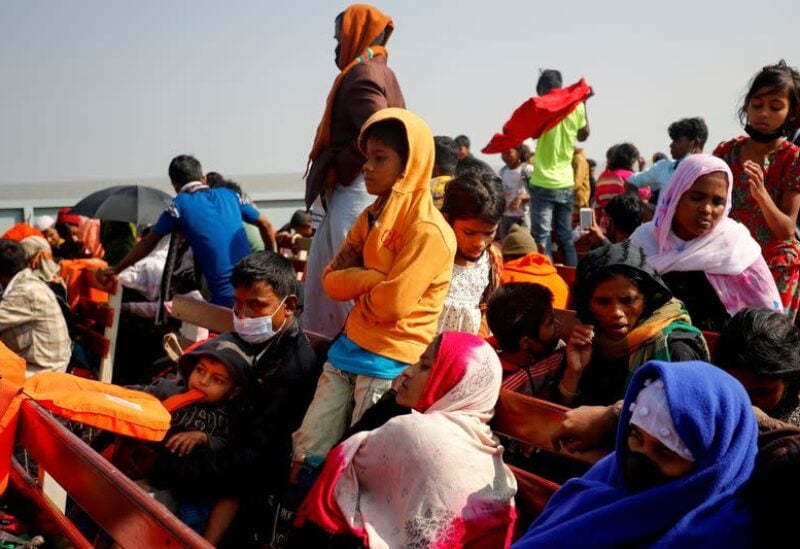
As officials prepare to ship thousands more people to a remote island off the coast of Bangladesh housing Rohingya refugees, a senior Red Cross official warned that “serious problems” remain.
Since last December, Bangladesh has relocated approximately 19,000 Rohingya refugees, members of Myanmar’s persecuted Muslim minority, to the island of Bhasan Char from mainland border camps.
Rights groups have compared it to an island prison, and some relocations have been deemed involuntary.
The International Federation of Red Cross and Red Crescent Societies’ Asia-Pacific director, Alexander Matheou, said restrictions on free movement and a lack of job opportunities and healthcare would “deter people from choosing to go in large numbers” to the island, which is several hours from the mainland.
Matheou, who visited on Tuesday, told Reuters over the phone that the site was “well-designed and organized in terms of housing” and had access to clean water, but that the health services were “too basic to cope with a large population” and that there was no established system of referrals to the mainland.
He said the main issue among refugees he spoke to was that they could not move back and forth to the mainland to see their families.
“While that’s difficult, that is really, really upsetting people,” he said. “So those issues could all act as a deterrent for people to voluntarily coming… I think that those will sort of undermine the success of the project unless they’re addressed.”
He said authorities, who plan to move another 81,000 refugees to the island, were exploring allowing people to travel to the mainland for limited periods.
Bangladesh officials did not respond to requests for comment by Reuters.
‘COERCED TO RELOCATE’
Refugees have called for freedom of movement between the floodprone island and the sprawling mainland camps near the port town of Cox’s Bazar. Dozens have died in recent months attempting to flee in rickety boats.
The United Nations agreed to start working on the island in October in an agreement that did not guarantee free movement, according to a leaked copy of the unpublished deal seen by Reuters.
A Bhasan Char official, who asked not to be identified because they were not authorized to speak to the media, told Reuters by phone authorities were preparing to ship another group of between 1,500 to 2,000 on Thursday.
Mohammed Arman, a refugee living on the island, said people did not want to come there because of the restrictions on movement.
Human Rights Watch said in a statement on Tuesday that camp officials and government security agencies were coercing refugees to relocate including by confiscating their identity documents.
“Bangladesh’s October agreement with the UN doesn’t provide a free ticket to forcibly relocate Rohingya refugees to Bhasan Char,” said Bill Frelick, refugee and migrant rights director at Human Rights Watch.
“On the contrary, donor governments will now be scrutinizing Bhasan Char to ensure their assistance doesn’t contribute to abuses.”
More than a million Rohingya live in Bangladesh after fleeing Myanmar, the vast majority in 2017 after a military crackdown that included mass killings and gang rapes and which the United Nations said was carried out with genocidal intent.
Myanmar denies genocide, saying it was conducting a legitimate campaign against insurgents who attacked police posts.